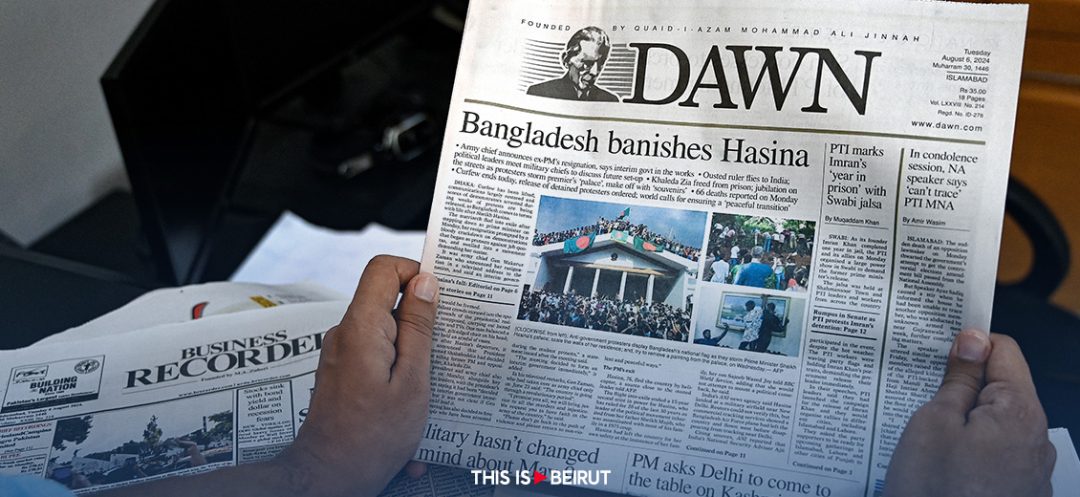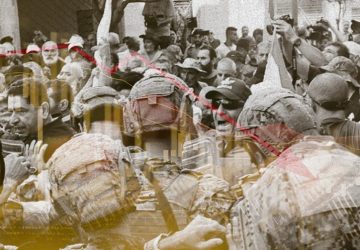Bangladesh’s army chief was due to meet student protest leaders on Tuesday, a day after the military took control as mass demonstrations forced longtime ruler Sheikh Hasina to flee the country.
Hasina, 76, had been in power since 2009 but was accused of rigging elections in January and then watched millions of people take to the streets over the past month demanding she quit.
Bangladesh’s key police association on Tuesday said its members were going on strike, a day after the protests they had sought to crush with deadly force toppled the prime minister.
“Until the security of every member of the police is secured, we are declaring a strike,” the Bangladesh Police Association, which represents thousands of police officers, said in a statement, which also offered an apology for police actions against the protesters.
Hundreds of people died as security forces sought to quell the unrest, but the protests grew, and Hasina finally fled Bangladesh aboard a helicopter on Monday as the military turned against her.
Army Chief General Waker-Uz-Zaman announced Monday afternoon on state television that Hasina had resigned and the military would form a caretaker government.
“The country has suffered a lot, the economy has been hit, many people have been killed, it is time to stop the violence,” said Waker, shortly after jubilant crowds stormed and looted Hasina’s official residence.
Student protest leaders, ahead of the expected meeting with the army chief, said on Tuesday that they wanted Nobel laureate and microfinance pioneer Muhammad Yunus, 84, to lead the government.
“In Dr. Yunus, we trust,” Asif Mahmud, a key leader of the Students Against Discrimination (SAD) group, wrote on Facebook.
Yunus has not commented on the call, but in an interview with India’s The Print, he said Bangladesh had been “an occupied country” under Hasina.
“Today all the people of Bangladesh feel liberated,” Yunus said, it reported.
Violence
The president and army chief also met President Mohammed Shahabuddin late Monday, alongside key opposition leaders, with the president’s press team saying it had been “decided to form an interim government immediately.”
Millions of Bangladeshis flooded the streets of Dhaka to celebrate after Waker’s announcement on Monday.
“I feel so happy,” said Sazid Ahnaf, 21, comparing the events to the independence war that split the nation from Pakistan more than five decades ago.
“We have been freed from a dictatorship.”
But there were also scenes of chaos and anger, with police reporting at least 109 people killed on Monday, including by mobs who launched revenge attacks on Hasina’s allies.
Political Prisoners Freed
The unrest began last month in the form of protests against civil service job quotas and then escalated into wider calls for Hasina to stand down.
Her government was accused by rights groups of misusing state institutions to entrench its hold on power and stamp out dissent, including through the extrajudicial killing of opposition activists.
The president on Monday, after meeting Army Chief Waker, also ordered the release of prisoners from the protests, as well as former prime minister and key opposition leader Khaleda Zia, 78.
Zia, who is in poor health, was jailed by her archrival Hasina for graft in 2018.
Mothers of some of the hundreds of political prisoners secretly jailed under Hasina’s rule waited outside a military intelligence force building in Dhaka on Tuesday, hoping for news.
“We need answers,” said Sanjida Islam Tulee, a coordinator of Mayer Daak, meaning “The Call of the Mothers,” a group campaigning for the release of people detained by Hasina’s security forces.
India’s foreign minister told parliament on Tuesday he was “deeply concerned till law and order is visibly restored” in neighboring Bangladesh, a day after the ouster of prime minister Sheikh Hasina.
Foreign minister S. Jaishankar also gave the first official confirmation Hasina was in India where she fled to on Monday as protesters stormed her palace.
“We … will naturally remain deeply concerned till law and order is visibly restored,” Jaishankar said.
New Delhi has kept a wary eye on the fall of Hasina, who pursued a delicate balancing act of enjoying support from India while maintaining strong relations with China.
With AFP





